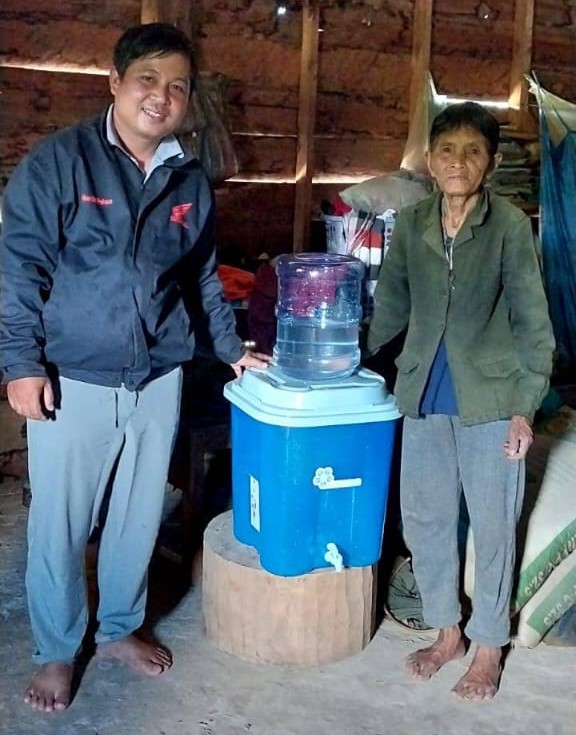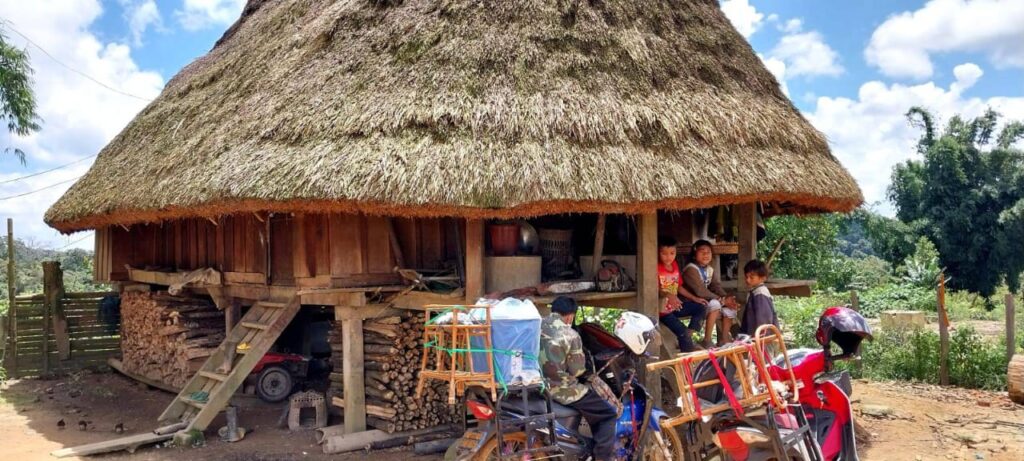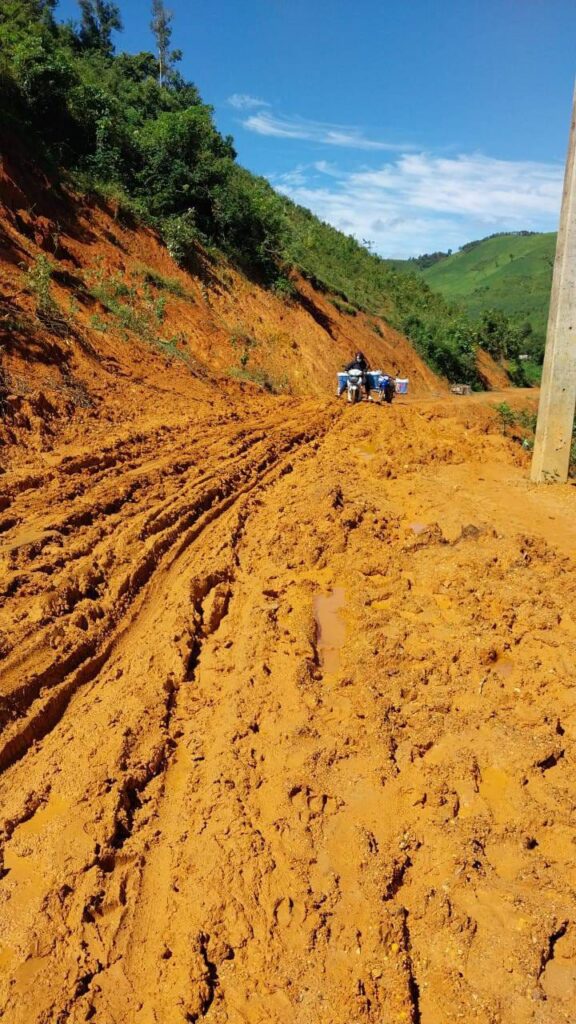Hello my name is Keo. I am the new TerraClear Sales Representative in Dakcheung District, a remote, very difficult to access area in Sekong Province, in southern Laos. While this position offers new challenges, it also has amazing opportunities. I will tell you more, but first let me introduce myself.
I am from Sekong Province, Laos. I am married, 38 years old, and I have 2 wonderful sons. I am grateful that some years ago my family and I left Pakse, in Champassak Province, and came back to live in Sekong Province, where I am from. Sekong was created in 1984 when it was split off from Salavan and Attapeu provinces. Sekong is on the of most ethnically diverse provinces in Laos, with a population of 85,000 and 14 major ethnic groups, each with different languages, culture, food, and life practices. Sekong is a diverse and exciting place with people who have very remote and difficult lives. When we moved back to Sekong in 2013, there was very difficult access to remote areas. Roads are getting better, especially from area near the city of Sekong in the center of the province and moving out to the farthest reaching areas.

In August, 2023 I accepted a new challenge: I applied for a job with TerraClear, a social enterprise in southern Laos that produces and sells ceramic water filters for household use. I applied for a new, special program that was designed to reach the most difficult to reach areas in Dakcheung District, in Sekong Province. This area is remote, mountainous, and has very difficult road access, especially during the rainy season when the roads become almost impassible (June-October). To access the area, I met a new experience in my whole life. Bringing filters into this remote area by motorbike, with the filters strapped to the back, I met people living on the far mountain areas, people who are cut off from the rest of the country and the world, who live by depending on subsistence farming and what they can gather in nature. Most families drink untreated water directly from the rivers and streams and are susceptible to illness from water borne diseases. Even in this difficult situation, the people I met have a unique patience, not worrying about life.

There are many villages who are accessed only with difficult roads and cannot be reached for the 3 or 4 months of the rainy season. It is difficult way to live. When there is someone who has an accident or illness, they cannot go to the doctor. They often chose to have local herbal or traditional medicine treatment. They have little understanding about health care and have different understandings about hygiene and health.

Even with all of this difficulty, there are really impressive points to these resilient and resolute people. Their poverty and lack of material resources does not seem to be an obstacle for their lives. The villagers have a sense of unity and help one another in a way that is not the same as people who live in cities. For village management, each village sets its own laws according to the ethnic cultural practices and their religious faith. Most have a good administration that aids them to work together in this difficult life. I am so excited that I have the role of bringing them clean drinking water. I look forward to being successful in bringing clean water to these communities.


